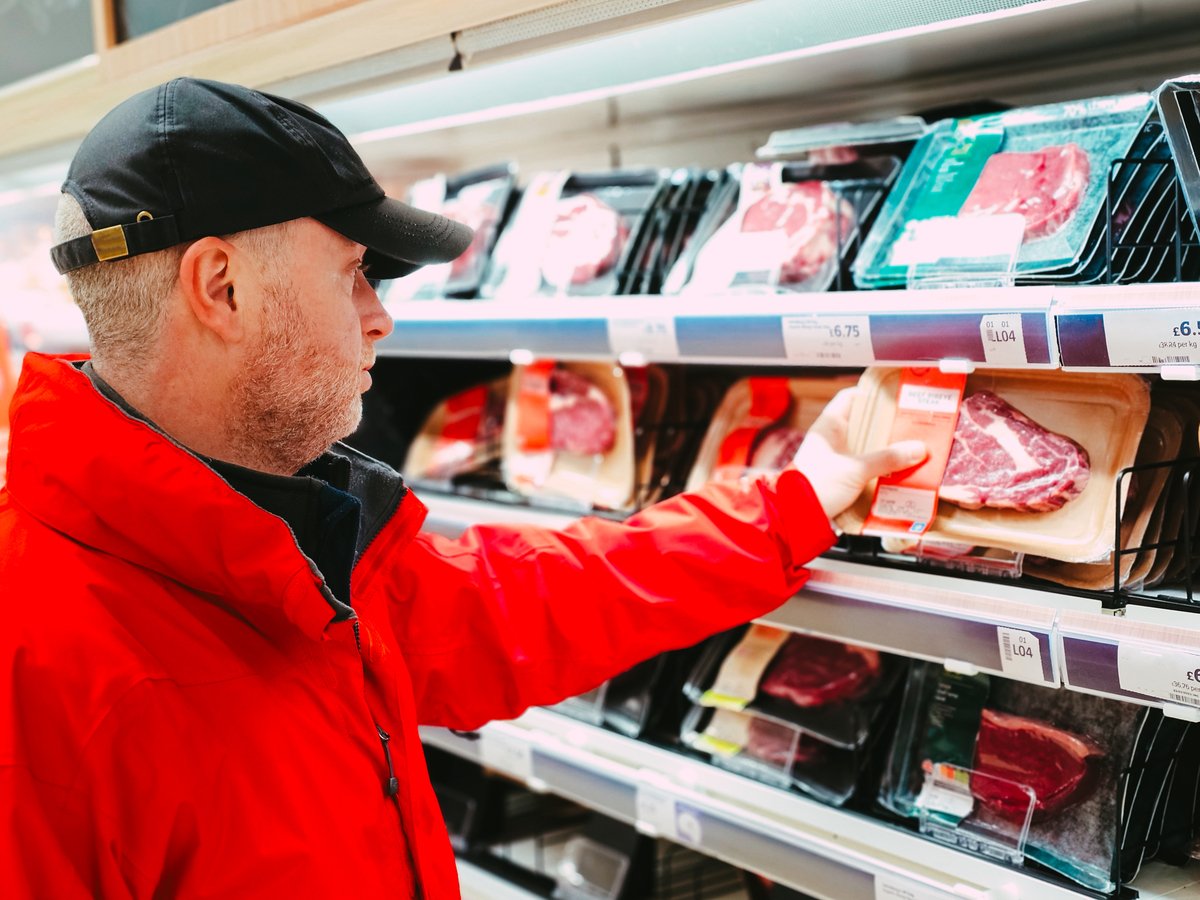Beyond Meat (BYND 3.70%), which makes plant-based meat substitutes, reported fourth-quarter and full-year 2019 results after the market closed on Thursday.
Shares are down 17% on Friday, as of 1:50 p.m. EST, while the S&P 500 is 2.6% lower. We can attribute the stock's drop in part to the company's quarterly earnings falling short of the Wall Street consensus estimate and its 2020 EBITDA (earnings before interest, taxes, and depreciation) coming in lighter than what analysts had been expecting. (Quarterly revenue and the 2020 revenue outlook both exceeded estimates.)
However, a large part of the stock's plunge is surely due to overall tough market conditions. The market has been getting walloped this week by the rapid spread of the COVID-19 coronavirus well beyond China. While it's not possible to tease out how much of Beyond Meat's stock drop is due to this factor, I'd guess it to be at least half of it. That's because at this point, investors are likely more concerned with revenue growth than profit growth -- and the company did great on this front. During any market sell-off, highly valued stocks are usually the first ones investors ditch.
Beyond Meat stock is up 252% since its May 2019 initial public offering, or IPO, at $25 per share, as of Friday at 1:50 p.m. EST.
Here's how the quarter worked out for Beyond Meat and its investors.

Image source: Beyond Meat.
Beyond Meat's key numbers
|
Metric |
Q4 2019 |
Q4 2018 |
Change |
|---|---|---|---|
|
Rental revenue | $98.5 million | $31.5 million | 212% |
|
Operating income | ($927 million) | ($7.1 million) | Loss narrowed 87% |
|
Net income | ($0.5 million) | ($7.5 million) | Loss narrowed 93% |
|
Earnings per share (EPS) | ($0.01) | ($1.10) | Loss narrowed 99% |
Data source: Beyond Meat.
For the quarter, Wall Street was looking for earnings per share (EPS) of $0.01 on revenue of $77.9 million, so Beyond Meat missed the profit expectation but easily beat on the top line.
For context, in the third quarter, revenue soared 250% year over year to $92 million. Net income came in at $4.1 million, or $0.06 per share, compared with a net loss of $9.3 million, or $1.45 per share, in the year-ago period. This was the company's first quarterly profit.
For full-year 2019, revenue skyrocketed 239% year over year to $297.9 million. Net loss was $12.4 million, or $0.29 per share, compared to net loss of $29.9 million, or $4.75 per share, in 2018.
Beyond Meat used $47 million in cash in operating activities in 2019, compared to $37.7 million in 2018, and ended the year with cash and cash equivalents of $276.0 million. From a cash-burn standpoint, the company is in good shape.
Product and channel performance
| Product | Q4 2019 Revenue | Change (YOY) |
|---|---|---|
| Fresh meat | $102.1 million | 238% |
| Frozen meat | $3.6 million | (17%) |
| Discounts | ($7.2 million) | Loss widened by 141% |
| Total | $98.5 million | 212% |
Data source: Beyond Meat. YOY = year over year.
| Distribution Channel | Q4 2019 Revenue | Change (YOY) |
|---|---|---|
| Retail | $40.6 million | 199% |
| Restaurant and foodservice | $57.8 million | 223% |
| Total | $98.5 million | 212% |
Data source: Beyond Meat.
The company's Q4 revenue growth was driven by growth in its fresh platform across all channels. It said the growth in volume sold was driven by "increased sales to international customers, expansion in the number of points of distribution, including new strategic customers, higher sales velocities at existing customers, and contribution from new products introduced in 2019."
Investors following the company know that more and more restaurant chains are offering Beyond Meat's products. These include Dunkin' Brands (DNKN +0.00%) and Tim Hortons, which is part of Restaurant Brands International (QSR +0.61%).
McDonald's (MCD +0.29%) -- which would be the big prize -- hasn't yet contributed much revenue to Beyond Meat's coffers, as the fast-food giant is only offering the company's plant-based burgers in a limited test market. In the fourth quarter, it began offering them at 28 restaurants in Ontario, Canada. In mid-January, McDonald's expanded its test market in the province to 52 total locations.
What management had to say
Here's what CEO Ethan Brown had to say in the earnings release:
Our outstanding fourth-quarter and full-year 2019 results are a testament to the vitality of the movement that we continue to lead. With our simple objective of building a perfect piece of meat from plants, our greater mission is much larger than us and seeks to address some of the key challenges of our time -- improving health and nutrition, enhancing the sustainability of our global food supply, while lowering our environmental impact, and promoting animal welfare.
A great 2019
Beyond Meat topped off an eventful 2019 with a great quarter. Investors shouldn't be concerned that the company missed Wall Street's earnings estimate. The miss was relatively small -- just $0.02, and at this early stage in the company's history, revenue performance is more important. Investors can expect bottom-line results to bounce around for a while based on the company's spending on growth initiatives.
2020 guidance
In the earnings release, CFO Mark Nelson said, "In 2020, we seek to build on this [strong] foundation while continuing to prioritize aggressive growth by increasing our intensity with respect to our marketing and R&D initiatives, and accelerating our global expansion plans to capitalize on our strong positive momentum."
For full-year 2020, Beyond Meat guided for the following:
- Net revenue in the range of $490 million to $510 million, representing growth of 64% to 71% from 2019.
- Gross margin in the range of 33% to 35%.
- Adjusted EBITDA as a percentage of net revenue approximately flat with the 2019 result. This is because the company "anticipates accelerated investments in marketing, R&D and international expansion initiatives in 2020." (In 2019, adjusted EBITDA was $25.3 million, or 8.5% of net revenue.)
Going into the earnings report, for 2020, Wall Street had been modeling for EPS of $0.42 on revenue of $498.3 million. So the market was surely pleased with the company's revenue guidance and likely not so happy with its EBITDA outlook.
Investors' main focus in 2020 should be on competition, which is heating up in the plant-based meat space.








